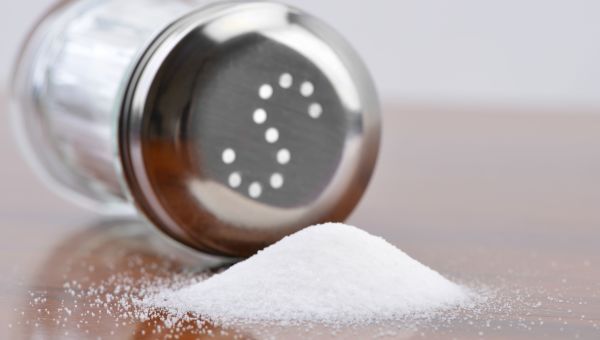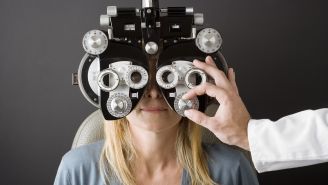Low thyroid? Here's how to overcome fatigue
Plus a common hypothyroidism myth, busted.

When it’s working properly, your thyroid—a hormone-producing gland at the base of your throat—is an unsung hero of metabolism regulation, affecting the body’s energy usage, temperature, heart rate and more. When you have hypothyroidism, however, the gland may not produce enough hormone, which slows metabolism and may cause fatigue.
According to Rachel Nutting, PA-C, a Certified Physician Assistant at West Valley Medical Center in Nampa, Idaho, fatigue is one of the most common complaints of people with hypothyroidism. “Generally, people come in with fatigue that’s not easily explained by other diseases,” she says. “Testing for thyroid dysfunction is one of the top tests I do.”
The hallmarks of thyroid-related fatigue are that it’s ever-present, no matter what you might do to combat it, and that your fatigue is accompanied by other symptoms related to slowed metabolism. These can include constipation, cold intolerance, depression and weight gain, says Nutting.
So, what can you do to fight the fatigue? Nutting offers some practical tips for getting back your energy and rejoining the “Can-do!” ranks.

Take your meds the right way
Standard treatment for hypothyroidism and its symptoms consists of a daily dosage of synthetic thyroid hormone, which is identical to the hormone naturally produced by your body. According to the National Institutes of Health, taking the proper dose of synthetic thyroid hormone every day can control almost all cases of hypothyroidism.
Beware, though: this medication does not always play well with other pills. Following proper protocol can make a big difference. “It’s a pickier medication than most,” says Nutting, who offers the following do’s and don’ts:
- Do take it on an empty stomach, first thing in morning. You may also take it an hour before eating or two hours afterward. The nutrients in some foods, particularly fiber-rich foods, walnuts, soybean flour and cottonseed meal, can cause erratic absorption of thyroid medication.
- Don’t eat anything for at least an hour afterwards.
- Don’t take it at the same time as iron or calcium supplements, both of which can bind with the hormone in thyroid medication and prevent your body from absorbing it.
Before taking any medicine, remember to speak with your doctor and follow their instructions.

Get moving
Because weight gain is a symptom, rather than a cause, of hypothyroidism, exercising for general health is a smart move to combat fatigue. “Exercising increases energy, decreases stress and can help manage weight, which is often a concern of people with hypothyroidism,” says Nutting.
The goal is at least 150 minutes a week of moderate exercise (or preferably more), she adds, but figuring out how to increase your activity level to any degree is more important than hitting a prescribed amount of time.
Feeling intimidated by the “E” word? Incorporating exercise into your day can be as easy as mowing the lawn, taking a bike ride or going for a swim. Just be sure to get your heart rate up for a minimum of 10 minutes at a time.

Focus on energy-sustaining foods
Though there is no specific hypothyroidism diet, maintaining a healthy diet is essential for staying ahead of the condition. Fruit, vegetables, whole grains and healthy fats should all be on the menu every day, says Nutting, while processed or sugary foods should be kept to a minimum. “Eating enough nutrients and vitamins is important to keep anybody feeling good.”
Furthermore, small meals, regularly spaced throughout the day, will help keep your energy up, she adds. “It allows your blood sugar to be more stable throughout the day, meaning no highs and lows, which can result in tiredness either way.”

Stress less
Stress isn’t a symptom of thyroid disease, but trying to keep up with your regular life when you’re fatigued could produce anxiety in even the most well-adapted person. “If you have hypothyroidism, talking about stress reduction is important,” says Nutting. “Stress itself can make you more tired.” She suggests regular doses of social support, massage, mediation, yoga, hobbies you enjoy—anything you like doing that helps relieve your stress while you wait for your medication to work.
If nicotine is your stress-reliever of choice, do your best to rethink that strategy. “Smoking is not a good thing to do if you’re struggling with fatigue,” says Nutting. A 2014 study found that smokers report feeling more tired and less motivated to change inactive behavior than nonsmokers. Plus, smoking decreases the amount of blood and oxygen that flows to your muscles, leading to muscle fatigue and aches.

Reset your sleep schedule
Getting on a good sleep schedule is invaluable for fighting fatigue, says Nutting. Shoot for seven to nine hours a night. “Set a regular time to go to bed and wake up every day,” she advises. A consistent sleep schedule reinforces your sleep-wake cycle, leaving you feeling more refreshed each morning. Making up for missed sleep during the week by sleeping late on the weekends will just make it harder to wake up at your regular time when you have to.
To increase the quality of your sleep, “Put away electronics an hour before bed,” says Nutting. Phones and tablets emit blue light, which suppresses your body’s production of melatonin, a natural sleep hormone. Plus, avoiding your phone can help decrease the stress of incoming news and messages, Nutting adds. Lastly, Nutting recommends tiring yourself out during the day with some physical activity and avoiding caffeine after 2 p.m. to promote sound sleep, and a fatigue-free tomorrow.

A common myth about hypothyroidism
If you’ve been diagnosed with hypothyroidism, you may have heard that iodine supplements can help cure you. While it’s true that iodine deficiency can suppress thyroid hormone production, the popularization of iodized salt has basically eradicated that threat in developed countries. “A lot of people think taking iodine will help with their thyroid, but in the US, we tend to get enough iodine in our food and salt, so it’s not a problem,” says Nutting. “Taking iodine wouldn’t affect or help anything." In fact, taking too much can worsen thyroid problems. Nutting adds that a blood test can confirm whether your hypothyroidism has anything to do with iodine.
More On


video

article


video


video


video
